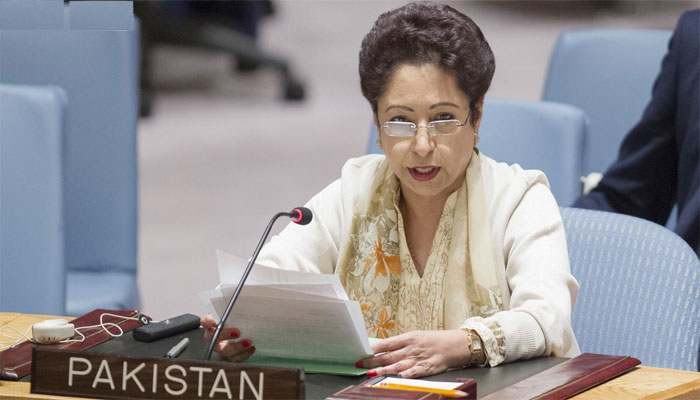Pakistan warns against use of FATF as political tool
Pakistani Ambassador at the UN Maleeha Lodhi said that current structures like FATF and the 1267 Sanctions regimes should not be used as political tools by some to advance their geopolitical goals
Highlights
- Pakistan had criminalized terrorist financing in accordance with the Terrorism Financing Convention
- Pakistan has always advocated that international efforts should be geared towards fighting the root causes
New York: In the Security Council, Pakistan has warned against the politicisation of the UN’s counter terrorism machinery saying this would only compromise the integrity of the regime.
Speaking in the Security Council debate on "Preventing and Combating the Financing of Terrorism," Ambassador Maleeha Lodhi said that current structures like FATF and the 1267 Sanctions regimes should not be used as political tools by some to advance their geopolitical goals.
“There is also a need to make these institutions more inclusive of the wider membership in their decision-making processes”, she added.
She pointed in her comprehensive statement to the several gaps that existed in the international community’s counter terrorism strategy. She identified the lack of international attention given to foreign intervention and foreign occupation, denial of the right to self-determination to peoples living under foreign occupation and continued violations of international law and the UN Charter as examples of such gaps.
The Pakistani envoy asserted that despite being obvious causative factors, these situations were ignored or cast aside. She said that the international community agreed that continued and persistent violations of human rights contributed to violent extremism. Yet killings continue in occupied Jammu and Kashmir and Palestine.
Ambassador Lodhi underscored that brutalization and oppression of people struggling for their legitimate right to self-determination constituted state terrorism, which should also be the focus of international attention.
Lodhi said "Pakistan has always advocated that international efforts should be geared towards fighting the root causes and not just the symptoms of terrorism."
The Pakistani envoy also referred to the rise of right-wing extremism and Islamophobia in some Western countries and called for swift action against this deliberate hate mongering which she said often led to violence.
Expressing solidarity with the government and the people of New Zealand on the recent terror attack in Christchurch, Ambassador Lodhi said that such attacks demonstrated that terrorism could not be associated with any faith, ethnicity or nationality.
“Pakistan”, Ambassador Lodhi said, “has been the principal victim of terrorism, including that supported, sponsored and financed from abroad.”
“But this has not diminished my country’s resolve to eliminate this scourge. It has in fact reinforced our will to fight until the last terrorist is eliminated from the country”, she added.
Highlighting Pakistan’s achievements in its counter-terrorism efforts, Ambassador Lodhi said that Pakistan had adopted a multipronged strategy which included military-led law enforcement campaign and a comprehensive national plan of action.
“Our 20-point National Action Plan”, she underscored, “focuses as much on counter measures as on preventive approaches, including confronting the risks arising from terrorist financing”.
“By successfully conducting the largest counter-terrorism operation anywhere in the world by deploying 200,000 of our troops, Ambassador Lodhi said, “our security forces have turned the tide against terrorism”.
Ambassador Lodhi also told the Security Council that Pakistan had criminalized terrorist financing in accordance with the Terrorism Financing Convention and had enacted laws to eliminate terrorism financing risks and implement its international obligations, including those arising from FATF recommendations and 1267 Sanction Regime.
-
Security forces gun down 30 terrorists in multiple IBOs in KP: ISPR
-
MQM-P calls for new province in Sindh
-
US report validates Pakistan military edge over India: PM
-
Banned TTP poses serious threat to Pakistan security: UNSC panel
-
CM Afridi clarifies remarks on by-poll after ECP requests army deployment
-
Dubai sees 3.2m Pakistani passengers in 2025 as airport sets new milestone
-
Security forces kill 23 Indian proxy terrorists in KP's Kurram
-
Pakistan to construct island to boost oil exploration: report












